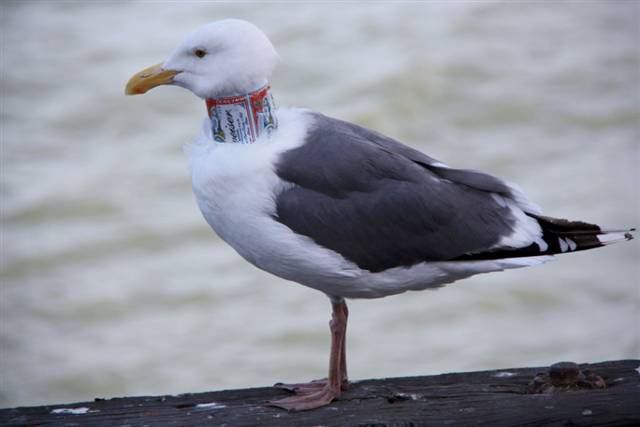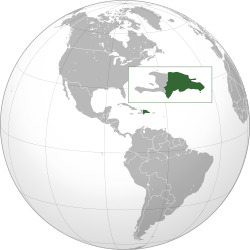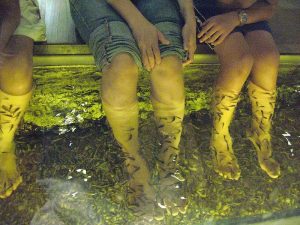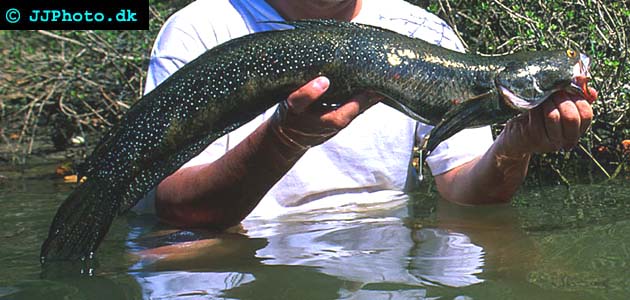Tag Archives: law
G20 Summit Recruits Top Notch Security…. Goldfish???
That’s right.. The new team which has been charged with looking out for the safety and wellbeing of the representatives of the G20 summit are six goldfish.
The people in charge at the Convention and Exhibition Center in Seoul, South Korea, have sworn in this “seal team” of fish to help keep tabs on the purity of the water in the bathrooms of the facility, in the hope that they will be able to sound the alarm if something is fishy.
Oh Su-Young, who heads up public relations for the venue, has told the AFP that the crack team of goldfish are being utilized as part of the process of inspecting the venue before the representatives arrive for the G20 summit, adding: “The fish also symbolize an eco-friendly water policy, which recycles used water for restrooms.” There was no mention made of exactly where this recycled water came from..
One of the people who will benefit from the efforts of these goldfish is British prime minister David Cameron when the summit takes place this 11th and 12th of November.
However, this is not the first time this year where animals have been trained and put to good use for the safety and wellbeing of our world leaders.
During the Commonwealth Games in Delhi, the police force of India scooped up monkeys and trained them to run regular patrols in the athlete’s village as well as the venues of the event.
These unlikely bouncers with long tails were meant to protect spectators and athletes alike, from the notorious Bonnet monkey, which supposedly holds a grudge against us humans.
Seagulls Found with Beer Cans Around Their Necks: $2,000 Bounty Issued!
Now this is just plain odd, cruel, and inhumane… A wildlife group has been made aware of a strange and brutal incident going on in the San Francisco Bay Area.. Someone has been going around and putting cut beer cans around the necks of seagulls!
They have stepped up, and said the person, or persons, responsible must be caught, and have even thrown in a $2,000 bounty.. Though they have not released if it was a “Dead or Alive” bounty…
It was reported by the WildRescue of Monterey, California that two such birds have been seen wandering around Half Moon Bay, Fisherman’s Wharf and Alcatraz Island.
The group has pleaded that the public be on the lookout for more of the poor creatures:
“Instead of attempting to capture the birds, which can make them more wary and harder to catch, sightings should be reported immediately to a dedicated paging service 831-429-2323 or emailed to rescue@wildrescue.org,” the group put out.
WildRescue has commented that it has also alerted the U.S> Fish and Wildlife Service.
“This is a federal crime punishable by severe fines, imprisonment, or both,” explained WildRescue’s spokeswoman, Rebecca Dmytryk.
The $2,000 reward, it is hoped, will help to give some added incentive for finding the people responsible.
“I feel pretty confident that if word gets around, we’ll be able to find the birds and help them,” Dmytryk commented.
So there you have it.. Whoever you are, your “beer can collar” days are coming to an end…
Boat Captain Facing 50 Large in Fines For Violations of Fishery Laws
A boat captain from the Dominican Republic has to pay some $50,000 in fines after he and his 28 crewman pleaded guilty to numerous infractions and violations of fisheries law.
Captain Eduardo Diaz and his 28 member crew were brought before Deputy Chief Magistrate Carolita Bethel yesterday. They literally had the book thrown at them in terms of violations. They were charged with engaging in foreign fishing, possession of prohibited apparatus, posession of undersized crawfish and grouper.
The court dockets state that on the 11th of October the men were discovered fishing in waters belonging to the Bahamas, aboard the small fishing boat “Adrian I”
The fishing boat was caught by a Cutter with the United States Coast Guard to the east of Ragged Island in the Columbus Bank.
It was reported that the men were carrying quite an odd assortment of illegal things such as nine air compressors, nine spear guns, a large portion of undersized crawfish and some one and a half tons of grouper which weighed less than two kilograms each.
The captain and crew of the “Adrian I”, with the aid of a translator, plead guilty to all charges laid against them. Magistrate Bethel went a little more lenient on them than the circumstances provided for, as they did not waste any of the court’s time.
Diaz, being the captain, was given a choice; cough up the $50,000 fine, or spend a year in jail, his crew was immediately deported, and all equipment confiscated. There was no mention as to whether he would get to keep the “Adrian I” or not, but one imagines he might sell it to pay for the fine.
A New New York Bill May Ban Flesh Eating Fish Pedicures
The controversial use of live fish to chew away dead skin in pedicures may be banned in New York State for health and safety issues which have been proposed in a new bill.
The procedure in question was actually developed in Turkey, as a way to take care of a variety of ailments of the skin, such as psoriasis, consists of the feet being plunked into a tank of water which contains two different kinds of small fish. These rather hungry fish then proceed to eat away dead skin while leaving the healthy skin alone.
These “Fish Pedicures” are illegal in at least 14 different states, comments Senator Jeff Klein, of the Bronx and Westchester, who originally proposed the ban. The basis of the ban rests on the concern that fungal infections may be passed by unsanitized fish in unclean water. Of course the animal rights groups have jumped on the band wagon, pushing to outlaw the use of fish in pedicures as it is inhumane.
Robin Ross, the president of the New York Podiatic Medical Association, had this to say during a telephone interview: “I do not recommend it to anyone who has any diabetes or any immuno-compromised condition such as AIDS or cancer, because of the risk of infection. The fish are defecating and urinating in that water and you’re sticking your feet in it.” ”
The New York Department of State has gone on the record, saying that it is not aware of any of the 20,000 plus licensed nail salons engaging in such an activity. Apparently it is only being done on the down low, in backrooms of New York City.
Japanese Company Caught in $2.4 Million Fishing Bust!
A Japanese company was caught with their hands in the cookie jar. They were caught in one of the biggest fisheries bust in New Zealand, illegally reeling in 600 tonnes of fish.
The Fisheries ministry has said that Kanai Fisheries Company, Aurora Fisheries, a New Zealand fishing company, and four Japanese Citizens have pleaded guilt to a combine 54 charges in the Wellington district court.
Each charge means a hefty fine of up to $250,000, bringing the possible total to a staggering $1,350,000 in damages, not including other penalties.
Andrew Coleman, the Fisheries Ministry’s field operations deputy chief executive, has commented that the operation lasted almost two years, involved 25 staff, and was the biggest operation in the history of the organization.
He went on to comment that the Japanese company bought out part of Aurora Fisheries quota which in turned allowed them to fish in New Zealand waters.
Tomi Maru 87, the company’s fishing boat, then proceeded to catch 112 tonnes of silver warehou and 481 tonnes of ling in a short two year period. The problem is that the area where the fish were reeled in was off the southern coast of the South Island, and outside of Aurora’s quota area.
However the company reported that the fish were caught well inside these boundaries. The export value of the ill gotten fish was estimated to be in the vicinity of $2.4 Million.
It should be noted that even though a guilty plea has been entered, does not mean any convictions will be made… Only time will tell.
Animal Lovers Rejoice! Historic Shark Fin Ban!
On July 1st, Hawaii became the first government in the world to institute a law to ban the sale, distribution and even possession of shark fins, the news is sending ripples all around the globe, and animal advocates everywhere are cheering, and ramping up their efforts to get their governments to do the same.
This new law means that restaurants in Hawaii will not be able to serve shark fin soup, a real delicacy, but the implications are so much greater than a few items on a lunch menu.
The shark has made the jump from predator and food source, to being protected. The new law instituted in Hawaii is aiming to prevent shark finning, a rather gruesome process where, once caught, the fins are removed from the shark, and the rest of it is thrown back overboard.
State Senator, Clayton Hee had this to say about the momentous occasion, “As far as I’m concerned it’s no different than killing an elephant for its tusks or de-horning a rhinoceros for its horn. These are cruel and inhumane practices that have no business in a civilized world”.
It was Senator Hee, with the support of many animal rights advocates, which managed to drum up the votes to make it illegal to have, serve, buy, or sell shark fins.
Other States, such as California, are starting to jump on the band wagon, and even other countries are talking about creating similar laws.
Not surprisingly, China is where a lot of the efforts are being made. WildAid launched a campaign in China using NBA superstar Yao Ming, to get people to stop buying shark fins, and stop eating shark fin soup.
Laws Preventing Skimmers from aiding in BP Spill!
Washington, June 30th – Officials are saying that the laws in place in the U.S. Have made it nigh impossible to get skimmers to the Gulf of Mexico in order to aid in sweeping up the oil which is gushing away madly from the Deepwater Horizon spill. This catastrophe is beyond scope, and something really needs to be done about it, however, it has been mentioned that the current legislation simply does not allow for it..
BP has stated that only 433 boats are actually sweeping up the oil, and that only about one tird of those are specially designed skimmers, making the job at hand a lot more difficult.
While the spill in the Gulf of Mexico is the largest spill in all of U.S. History, however it does not invalidate the Jones Act of 1992. The Jones Act of 1992 protects U.S. Shipping, and it also forced a French company to sell nine skimmers to a U.S. Company before they could be allowed to aid in the cleanup process. Many people are in an uproar over this fact, as the Jones Act only covers business interests, and does not allow any contingencies for matters of national emergency, which the BP oil spill in the Gulf of Mexico certainly falls under. There has been no mention if there may be an acceptance added, or any change at all made, in order to allow international skimmers to come in and aid in the cleanup process.
If that weren’t enough, the Oil Pollution Act of 1990, which states that skimmers need to be on standby in ports all around the country in case of emergency, are making the job of actually getting the skimmers to where need to be, quite a troublesome endeavor. There has been no motion in getting these skimmers moved, which has led a lot of people to wonder if the U.S. Really wants to get the BP oil spill in the Gulf of Mexico cleaned up at all. The reasoning is that if there is another catastrophe in another port, those skimmers need to be on standby, in order to respond quickly and efficiently to deal with the issue. This unfortunately, leaves the workers and cleanup crew currently working feverishly to clean up this horrendous mess completely and utterly on their own for the time being.
What makes this situation so frustrating, is that when one looks at a Coast Guard map, as U.S. Senator George LeMieux pointed out, there are 850 skimmers in the southeast and 1,600 nationwide, sitting in their docks not doing anything. “We are literally talking about more than a thousand skimmers that are available, but we only have 400 — if this number is correct — at work,” LeMieux said. “It is hard to believe that the response is this anemic; it is hard to believe that there is this lack of urgency or sense of purpose in getting this done.”
Federal law prohibits krill fishing off U.S. west coast

Yesterday, the U.S. National Oceanic and Atmospheric Administration (NOAA) published a final rule in the Federal Register prohibiting the harvesting of krill in these three regions. All types of krill harvesting will be illegal, regardless of fishery and gear type.
“Krill are the foundation for a healthy marine ecosystem,” said Mark Helvey, NOAA’s Fisheries Service Southwest Assistant Regional Administrator for Sustainable Fisheries. “Protecting this vital food resource will help protect and maintain marine resources and put federal regulations in line with West-Coast states.”
Harvesting krill within three miles of the coastline of California, Oregon, and Washington has already been prohibited by state law, but the zone situated between three and 200 miles off the coast have lacked krill protection until now.
“This is a great success for protecting the entire California Current ecosystem“, said William Douros, West Coast Regional Director for NOAA’s Office of National Marine Sanctuaries. “This decision reflects strong teamwork within NOAA and a commitment to addressing the issues raised by the Pacific Fishery Management Council and Sanctuary Advisory Councils.”
The krill protection rule was adopted as Amendment 12 to the Coastal Pelagic Species Fishery Management Plan (FMP), which was developed by the Pacific Fishery Management Council (PFMC) under the Magnuson-Stevens Fishery Conservation and Management Act. Amendment 12 adds all species of krill under a new category: ‘prohibited harvest species’.
Death sentence might be revoked for New York snakehead
Rocky, a snakehead living with its keeper Chris Deverso in New York State, might get a new lease on life.
Snakeheads are Asian predatory fishes capable of breathing oxygen from the air and move over land. They have been banned in the USA since they might wreck havoc with North American ecosystems if introduced to the wild.
Channa marulius caught by fisherman.
Copyright www.jjphoto.dk
Due to this regulation, the Department of Environmental Conservation wanted to euthanize the pet snakehead, but Deverso – who has owned the fish since before the ban was put into action in 2004 – refused to give up his pet and has therefore been back and forth to court and fined for owning the illegal fish.
The Department of Environmental Conservation has now offered a compromise; they will grant Deverso an educational permit, provided that he fulfils the educational permit requirements. He must:
– Install a lock on the top of the aquarium.
– Holds an open house or lecture in his home for groups interested in learning about snakehead fish.
– Pay an annual permit fee of $500.
“I never went to college; I never made much. I’m just an average guy who stood up for what I believed in and hopefully in time I’ll be granted the permit and it’ll all be worth it,” said Deverso. “I’ve taken care of him for 11 years, it’s my family pet; $500 is a lot of money but if it saves his life, it’s worth it.”
Reef destroyed to be used for bone surgery, dentistry and drugs
1.2 million tonnes of coral may have been illegally extracted from reefs located near Malaysia’s protected Semporna Islands Park.
State Tourism, Culture and Environment Minister Datuk Masidi Manjum has formed a committee that will investigate the allegations made by former state Social Services Minister Datuk Kong Hong Ming.
According to the former minister, corals have been extracted for 10 years by a certain group under the pretext of dredging sea sand. The corals have then been ground up and the powder sold to medical and pharmaceutical companies to be used for bone surgery, dentistry and drugs. Kong Hong Ming also said that he has visited an area in Tawau where 1,000 tonnes of corals were stored and that all corals were moved two days after his visit.
Manjum has now given the committee, headed by his minister Deputy Permanent
Secretary William Bayo, three weeks to wrap up its investigation.
“This is a very serious matter. I do not want to prejudice the probe by saying any more about it,” Masidi said Thursday.
Semporna Islands Park, also known as the Tun Sakaran Marine Park, is home to one of the nation’s prime coral reefs and the surrounding area is also very rich in biodiversity.






